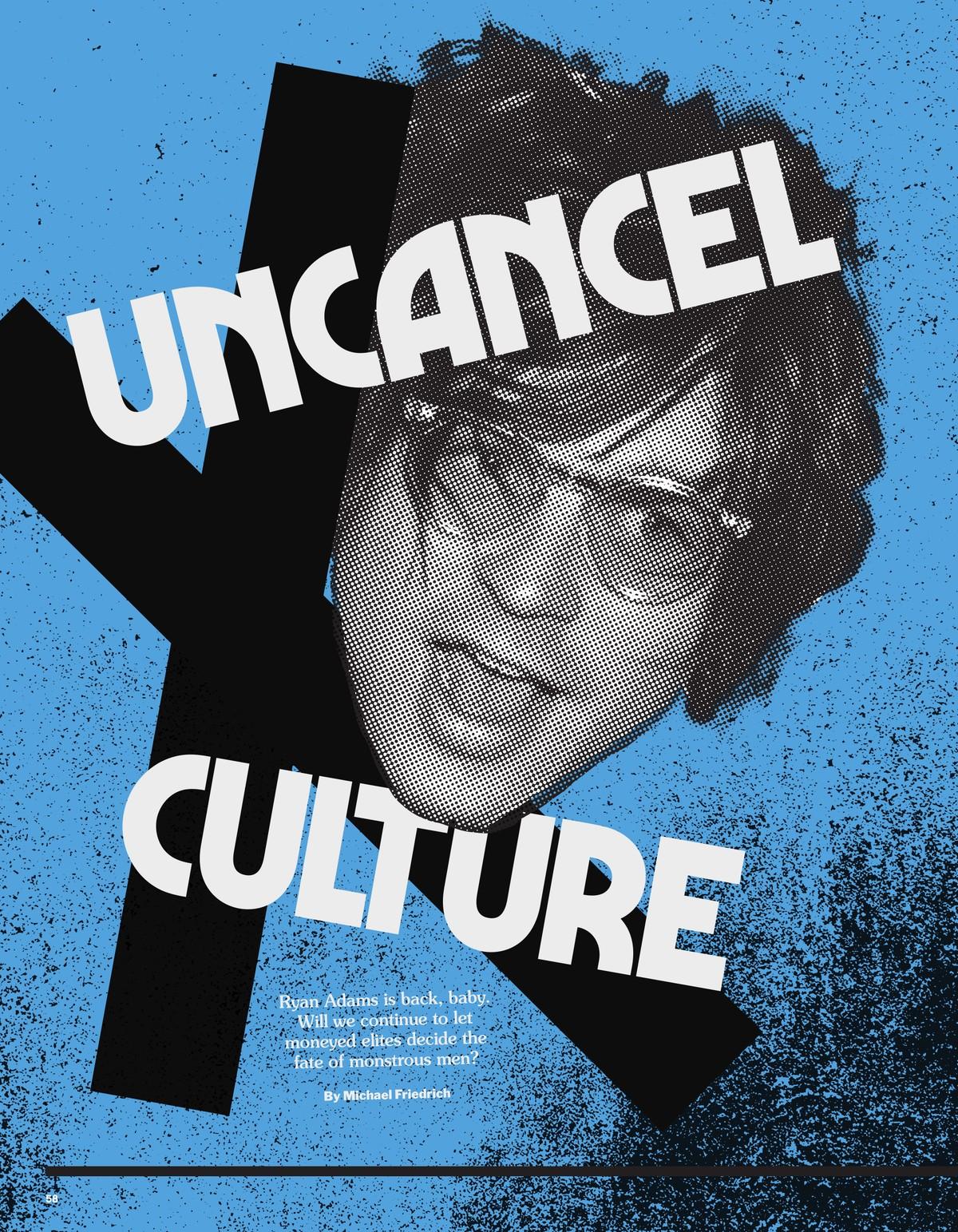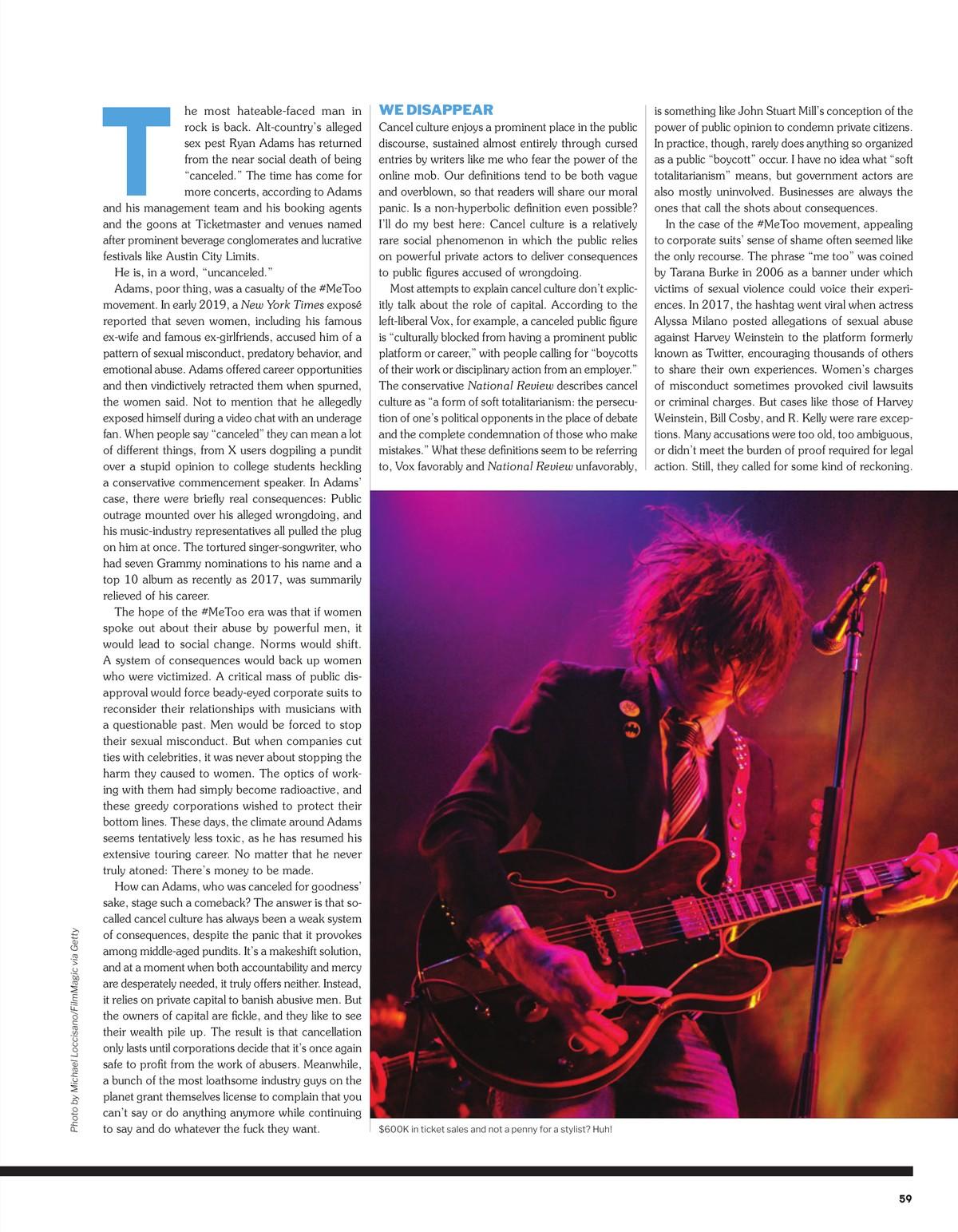UNCANCEL CULTURE
The most hateable-faced man in rock is back. Alt-country’s alleged sex pest Ryan Adams has returned from the near social death of being “canceled.” The time has come for more concerts, according to Adams and his management team and his booking agents and the goons at Ticketmaster and venues named after prominent beverage conglomerates and lucrative festivals like Austin City Limits.
June 1, 2024


Loading...

